What to know about COVID-19 vaccines
The updated vaccine is recommended for everyone 6 months and older.
For the latest information on the updated COVID-19 vaccine, visit kp.org/covidvaccine.
The Centers for Disease Control and Prevention recommends everyone 6 months and older get an updated COVID-19 vaccine to protect against the potentially serious outcomes of COVID-19 illness this 2023 to 2024 fall and winter season.
Members can go to kp.org/covidvaccine for information on how they can receive the updated COVID-19 vaccination.
Why should I get the updated COVID-19 vaccine?
According to the CDC, if you haven’t received a COVID-19 vaccine in the past 2 months, you should get an updated COVID-19 vaccine.
“Vaccination is still the best protection against COVID-19-related hospitalization and death,” said Craig Robbins, MD, physician co-lead for Kaiser Permanente’s national COVID-19 vaccination program. “We very much encourage those who are eligible to get vaccinated.”
CDC experts also recommend the updated vaccine for reducing your chance of suffering the effects of long COVID, which can develop during or following acute infection and last for an extended duration.
According to the CDC, the updated vaccine has met the CDC’s rigorous scientific standards for safety, effectiveness, and manufacturing quality.
Does everyone get the same dose?
No, there are different dosage recommendations depending on your age and previous vaccinations.
- 5 years and older, regardless of previous vaccination: Single dose of an updated mRNA COVID-19 vaccine at least 2 months since the last dose of any COVID-19 vaccine
- 6 months to 4 years, previously vaccinated: 1 or 2 doses of an updated mRNA COVID-19 vaccine (the timing and number of doses depends on the previous COVID-19 vaccine received)
- 6 months to 4 years, unvaccinated: 3 doses of the updated Pfizer COVID-19 vaccine or 2 doses of the updated Moderna COVID-19 vaccine
Will I have to get a COVID-19 vaccination every year?
The updated vaccine is expected to provide good protection against the currently circulating COVID-19 variants. The Food and Drug Administration anticipates that the composition of the COVID-19 vaccine may need to be updated annually, as is done for the seasonal flu vaccine.
Can I get the COVID-19 and flu vaccines at the same time?
There has now been enough safety data tracked that the CDC allows COVID-19 vaccination at the same time as other vaccinations, such as the flu shot. This includes simultaneous and same-day administration of the COVID-19 vaccine and other vaccines and applies across all age groups that are eligible for COVID-19 vaccination. The CDC’s recommendation highlights the importance of staying up to date on all appropriate vaccinations to protect your total health.
For more information on COVID-19 and other seasonal respiratory illnesses, visit kp.org.
-
Social Share
- Share What to Know about COVID-19 Vaccines on Pinterest
- Share What to Know about COVID-19 Vaccines on LinkedIn
- Share What to Know about COVID-19 Vaccines on Twitter
- Share What to Know about COVID-19 Vaccines on Facebook
- Print What to Know about COVID-19 Vaccines
- Email What to Know about COVID-19 Vaccines
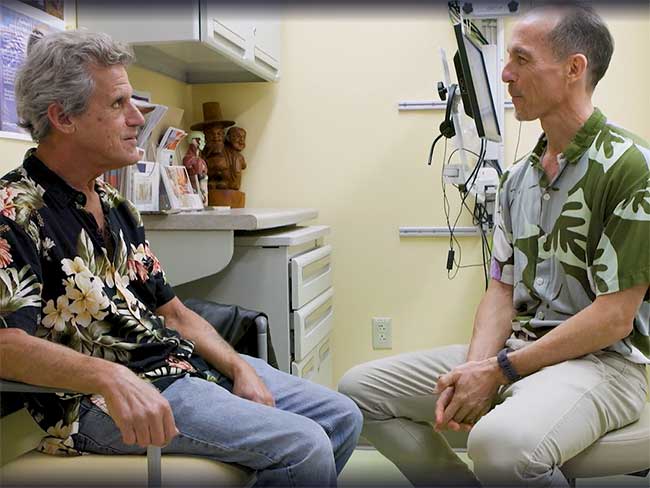
March 7, 2025
Kaiser Permanente in Hawaii cures 1,000th patient with hepatitis C
The milestone highlights its Viral Hepatitis Clinic's crucial role in addressing …
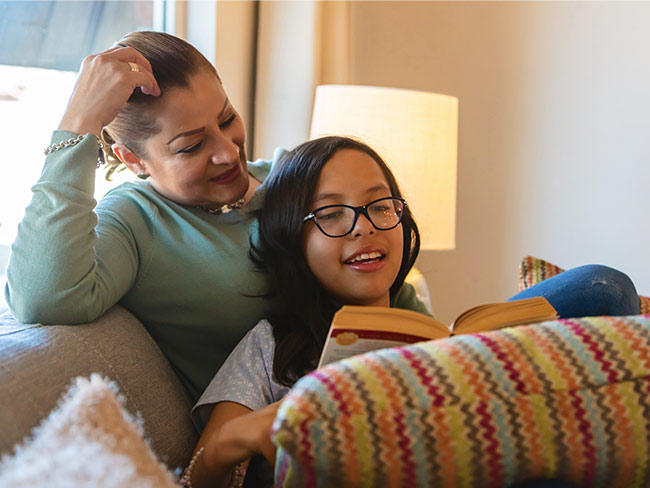
January 13, 2025
How to prevent cervical cancer
Cervical cancer is highly preventable. HPV vaccination and regular screenings …
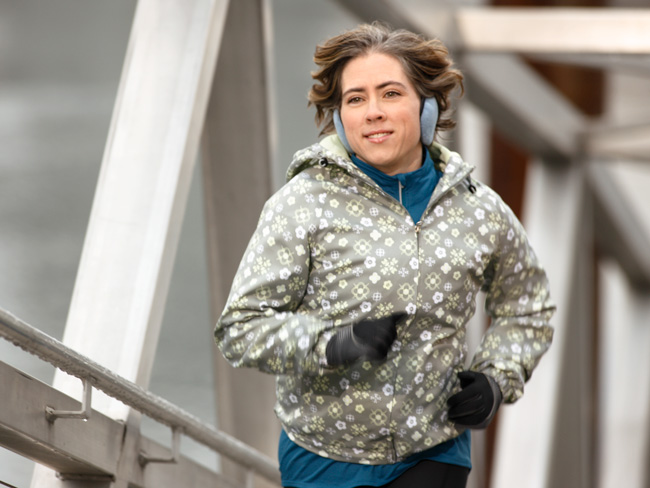
February 7, 2024
To stay well, get vaccinated and practice healthy habits
Cases of flu, COVID-19, and RSV continue to spread in our communities. …

December 21, 2023
It’s not too late to get your flu shot
Flu season often continues into early spring. Here are 5 reasons you should …

October 27, 2023
Nearsightedness in kids: Taking a closer look
Nearsightedness, also known as myopia, is on the rise. To reverse that …

October 17, 2023
Flu protection for all that is you
Getting vaccinated is a safe and effective way to avoid getting sick.

August 17, 2023
Beyond clinic walls: Research supporting healthy communities
Stories in the Department of Research & Evaluation 2022 Annual Report demonstrat …

August 15, 2023
'Hot-spot' strategy gets more Californians vaccinated
A new location-based vaccine strategy by Kaiser Permanente was successful …

July 21, 2023
Thankful for every day after HPV-related cancer diagnosis
Michael West shares his incredible journey from diagnosis to treatment …

June 6, 2023
COVID-19 vaccine: No serious side effects in young children
Kaiser Permanente researchers led analysis of large, diverse group of young …
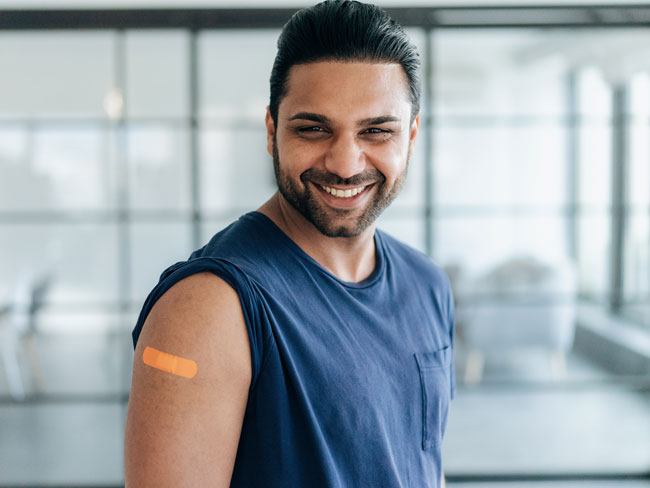
May 16, 2023
COVID-19 public health emergency has ended: What’s changed?
Vaccinations, testing, and treatment are still widely accessible. Member …
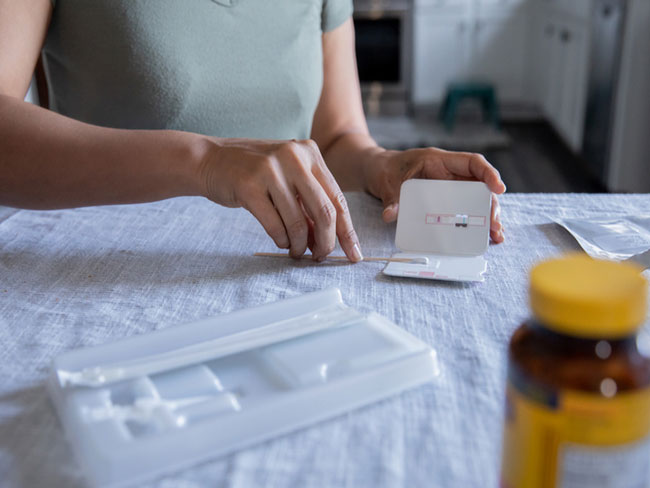
May 11, 2023
COVID-19 testing, testing — Get results in 1, 2, 3
Testing is the most important way you can help control the spread of COVID-19.

April 11, 2023
Collaboration is key to keeping people insured
With the COVID-19 public health emergency ending, states, community organization …

April 7, 2023
Virtual care helps ease physical pain
Kaiser Permanente offers many high-quality, convenient options to help …
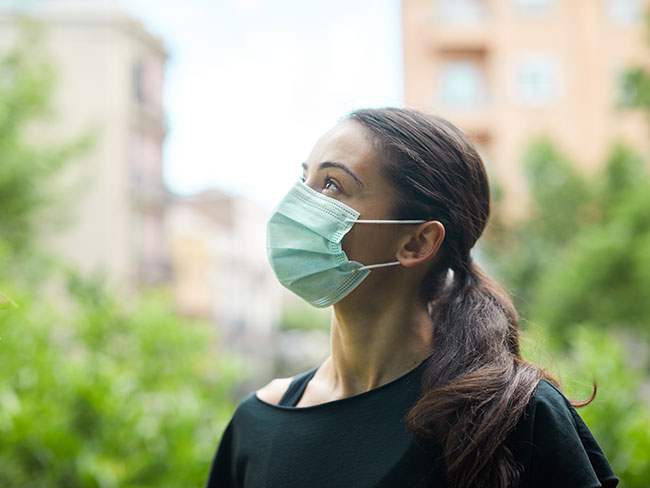
March 16, 2023
Marking the COVID-19 pandemic’s third year
Learning from this historic health crisis will better prepare us for future …
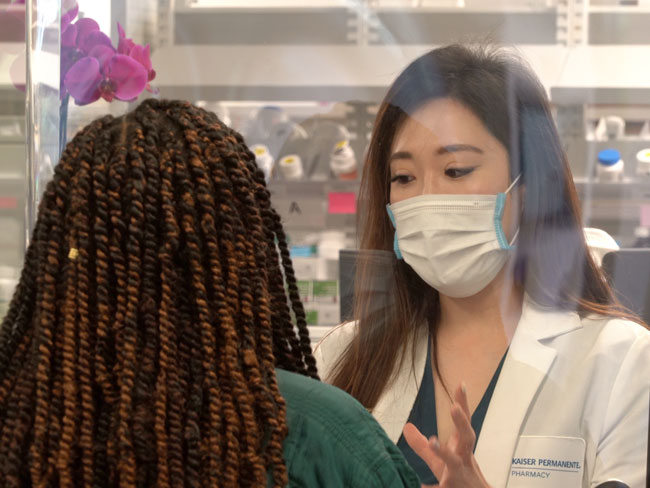
March 16, 2023
Paxlovid associated with lower risk of hospital admission
A Kaiser Permanente study finds COVID-19 patients treated quickly with …

March 6, 2023
Living with long COVID
From avid snowboarder to chronically ill patient. How Kaiser Permanente …
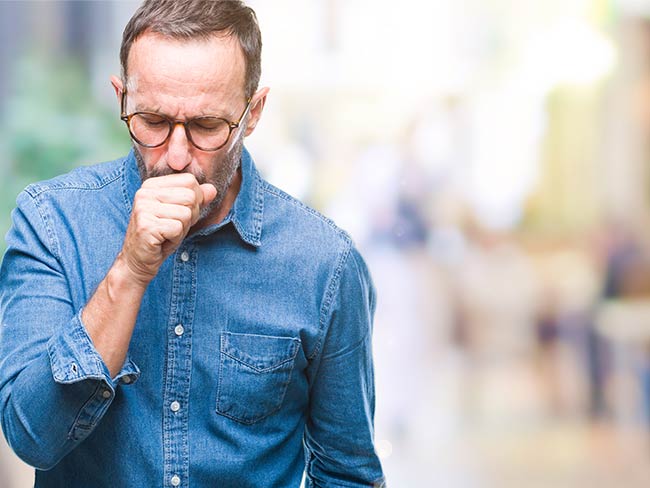
February 28, 2023
What you need to know about COPD
Almost 16 million people in the United States have chronic obstructive …
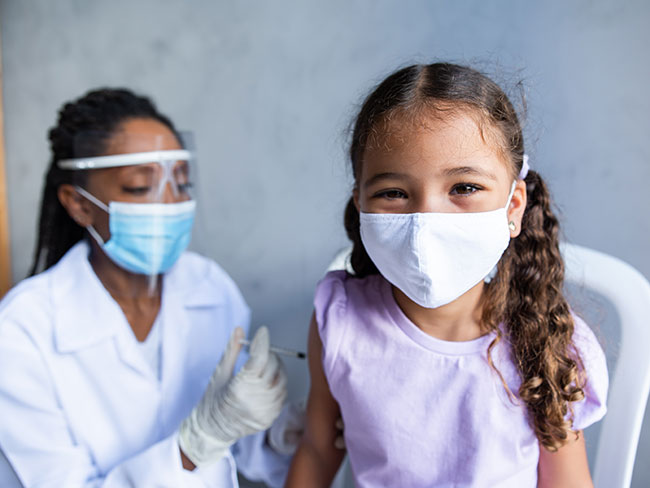
February 27, 2023
Teaching flu a lesson
School-based flu vaccination clinics made it safe and convenient for students …
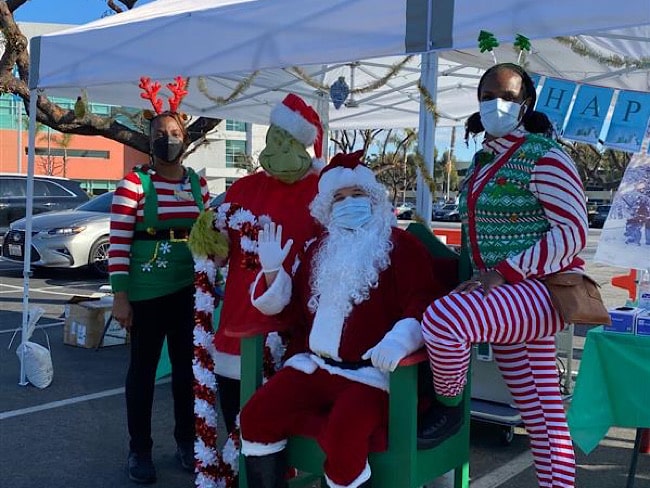
January 27, 2023
Timely flu vaccinations at community events
Proactive flu prevention outreach helped community members in Downey, California …
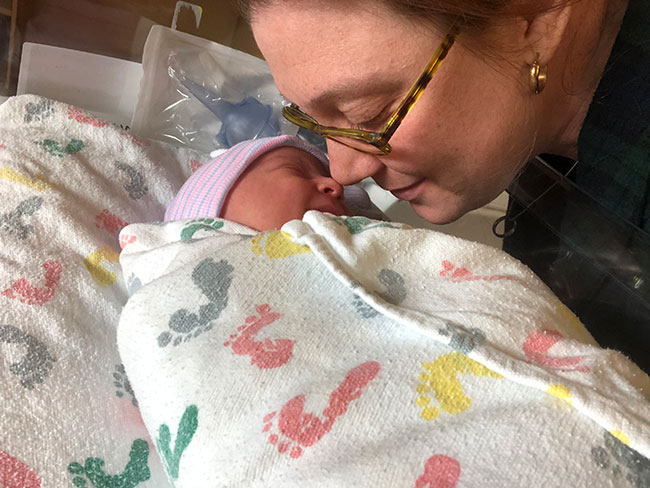
September 27, 2022
Maternity appointments from the comfort of home
New care option offers pregnant patients a mix of in-person and video visits.

June 27, 2022
Kids 6 months to 17 years can receive COVID-19 vaccination
Providing safe and effective vaccinations to children is an important step …
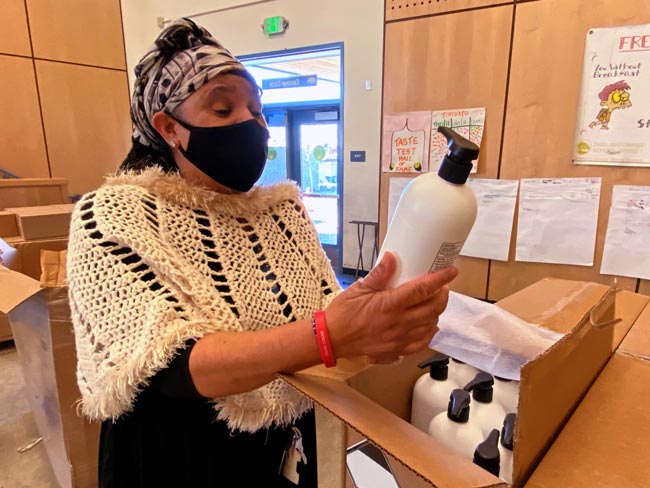
May 4, 2022
Donated supplies keep community organizations pandemic-ready
We donated over $28 million worth of face masks, hand sanitizer, and other …
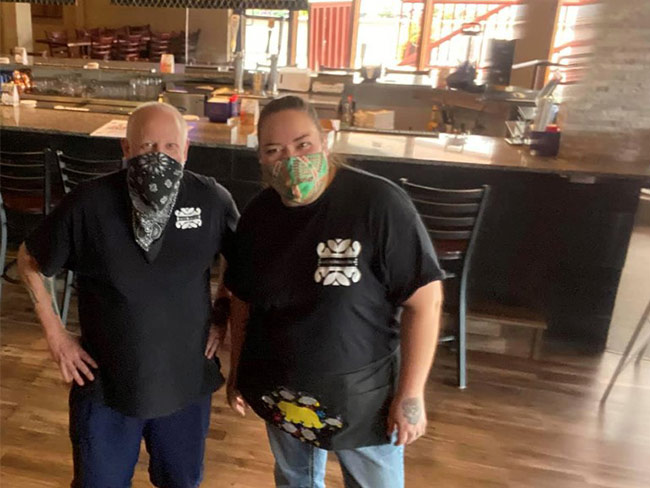
January 25, 2022
Helping small businesses thrive during the COVID-19 pandemic
Kaiser Permanente grants are supporting businesses such as the Carefree …
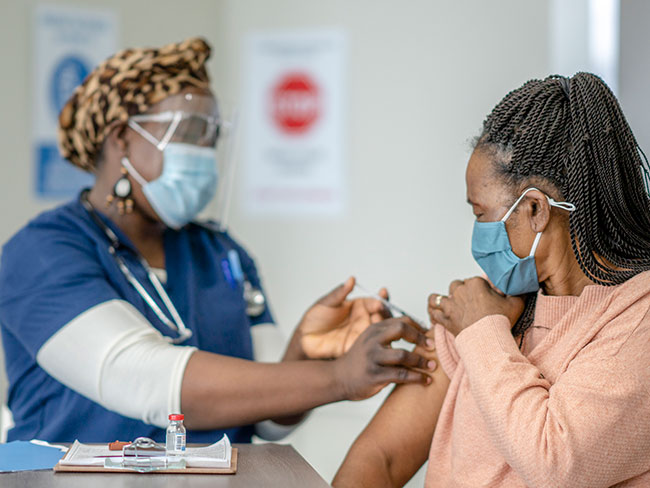
December 6, 2021
Faith leaders use trusted voices to encourage vaccination
Grants expand support for faith-based organizations working to protect …
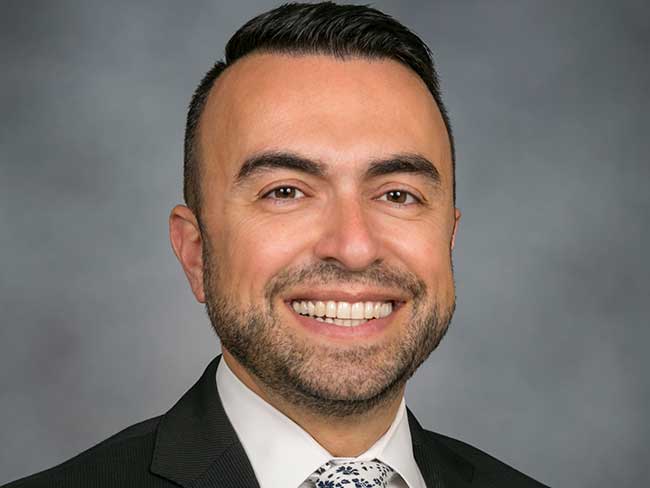
November 30, 2021
Bechara Choucair, MD, returns as chief health officer
After serving on the White House COVID-19 response team, Bechara Choucair, …
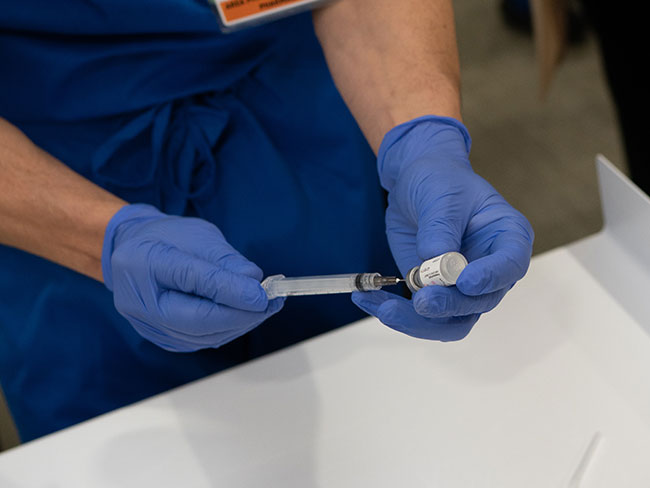
October 12, 2021
Beyond advocacy: Requiring vaccination to stop COVID-19
Kaiser Permanente and other leading companies are mandating COVID-19 shots …
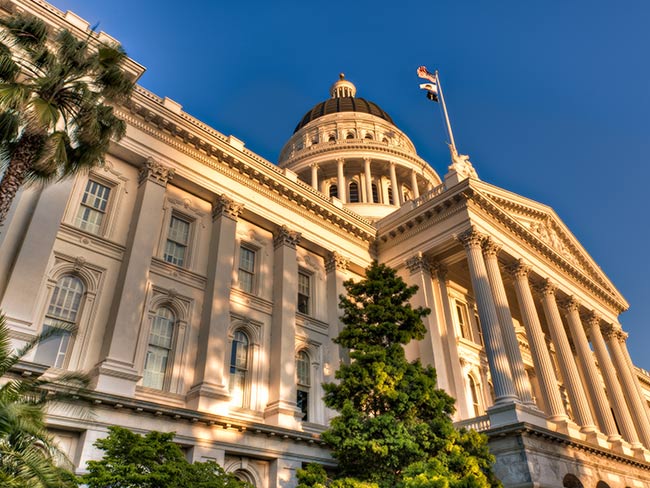
October 1, 2021
Our support of California’s student vaccination requirement
A statement from Kaiser Permanente chair and chief executive officer Greg …

August 19, 2021
Supporting small businesses owned by people of color
Kaiser Permanente’s partnership with Local Initiatives Support Corporation, …
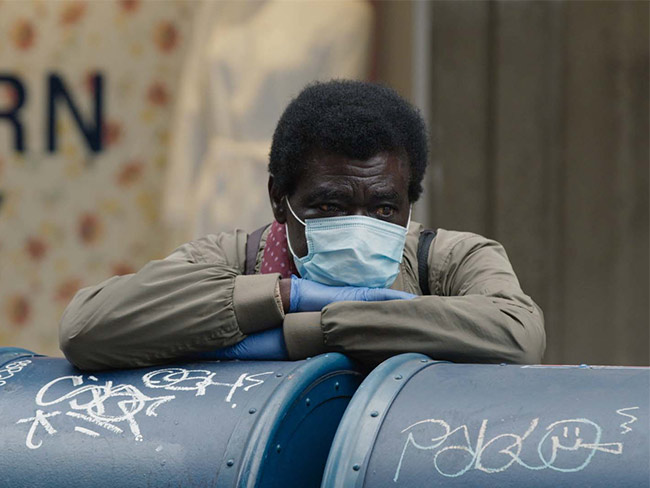
August 17, 2021
Homeless in a pandemic
For people without a safe place to call home, good health is often out …
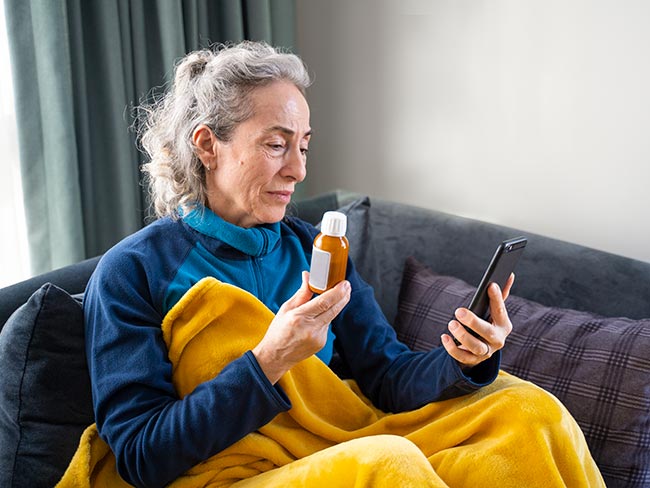
June 8, 2021
Cancer patients and physicians embrace telehealth
Video visits and virtual collaboration speed cancer care transformation …
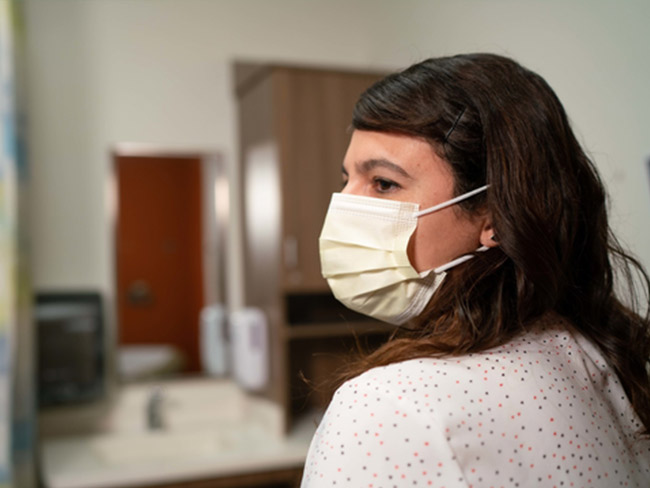
April 28, 2021
COVID-19 outcomes are more severe for people of color
Kaiser Permanente research underscores the importance of culturally appropriate …
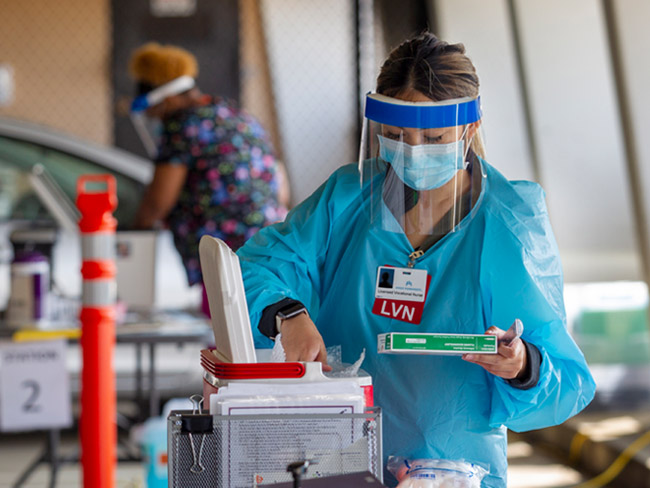
March 23, 2021
Vaccine Equity Toolkit will help address equitable access
As vaccines bring hope to end the pandemic, Kaiser Permanente’s toolkit …
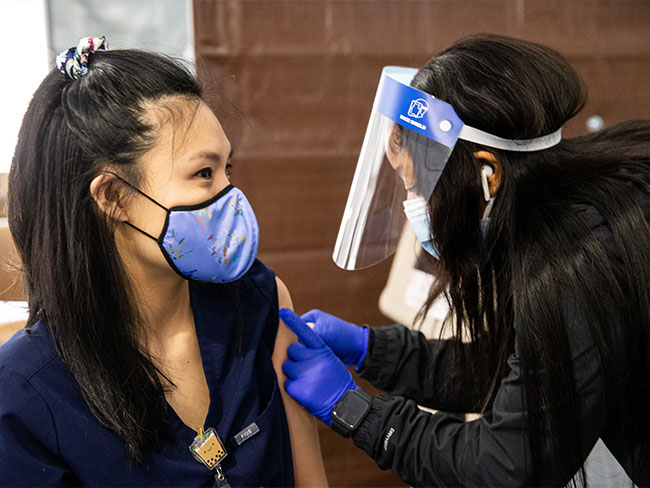
March 11, 2021
Our support of the American Rescue Plan Act
A statement from CEO Greg A. Adams about the American Rescue Plan Act.
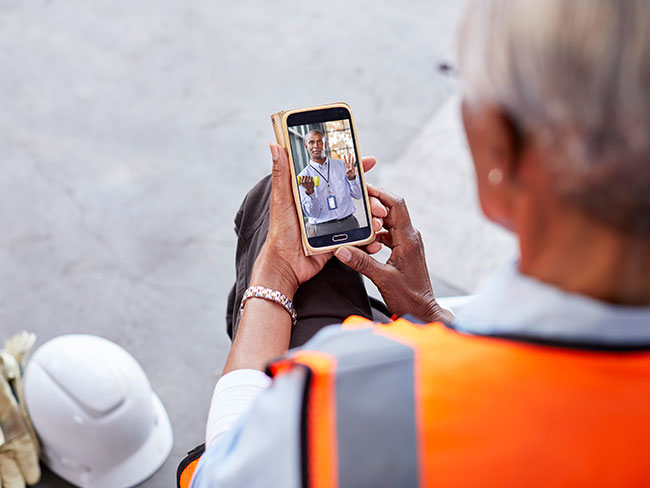
January 15, 2021
The fastest path to care
Available 24/7 with no appointment, e-visits offer Kaiser Permanente members …

November 24, 2020
Pandemic spurs new approach to diabetes care
A diabetes specialist talks about new trends in providing care, and innovations …
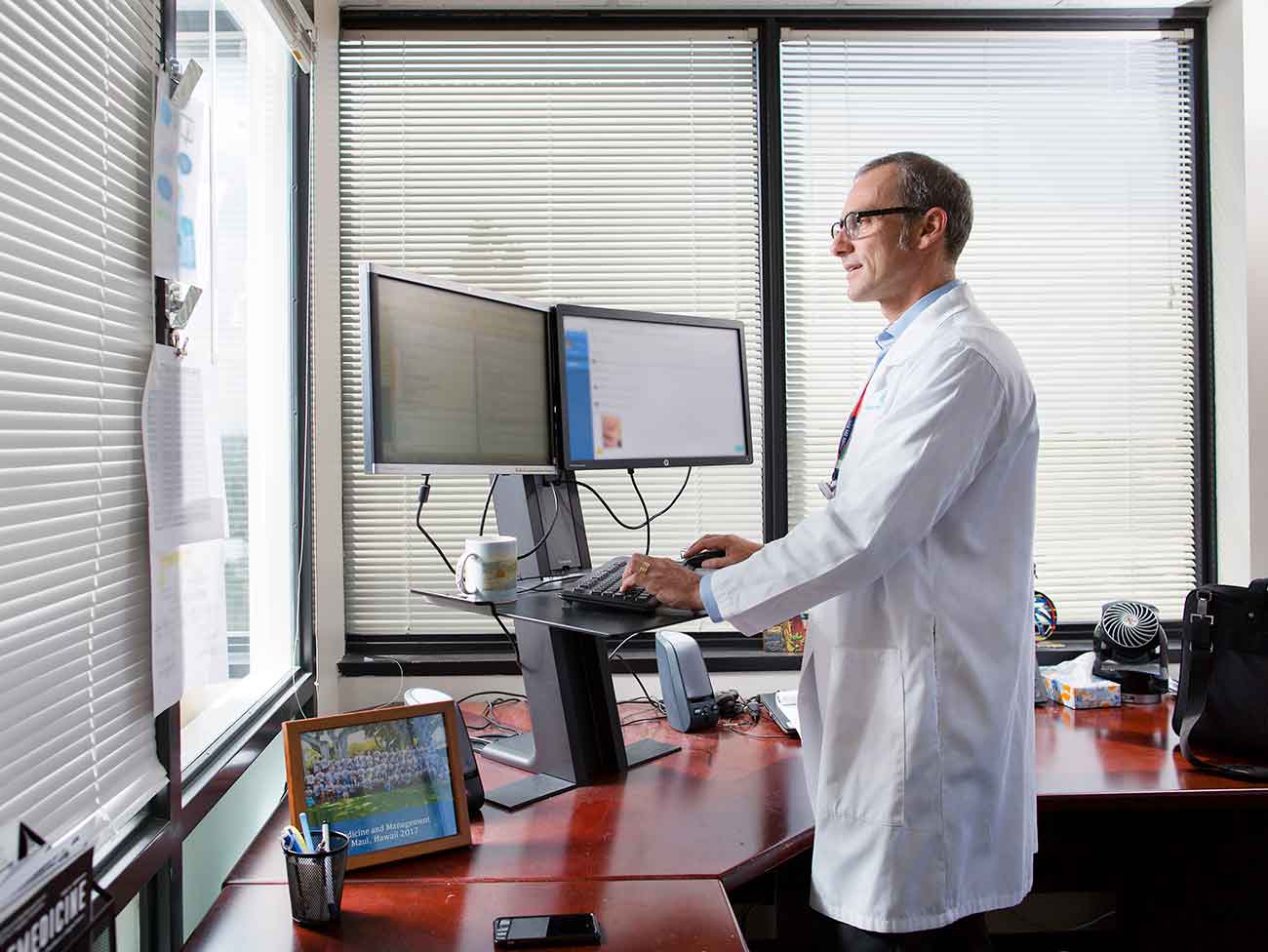
October 2, 2020
Making (virtual) house calls
With expanded telehealth options, Kaiser Permanente members get convenient …
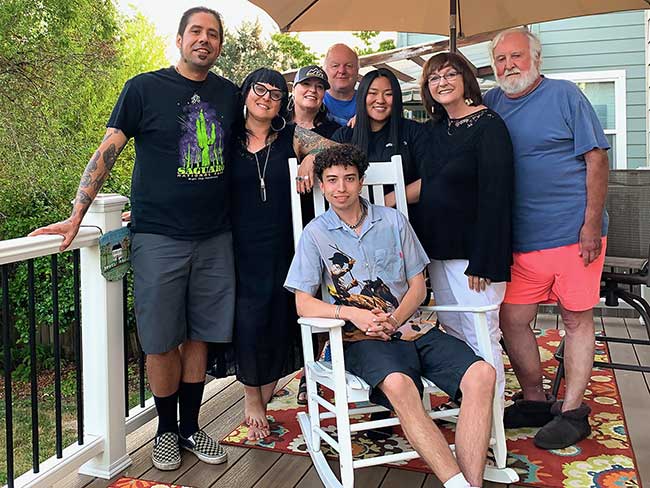
September 30, 2020
Cardiac care in the time of COVID-19
Skilled care and thorough infection-prevention protocols kept Eleanor Gorman …
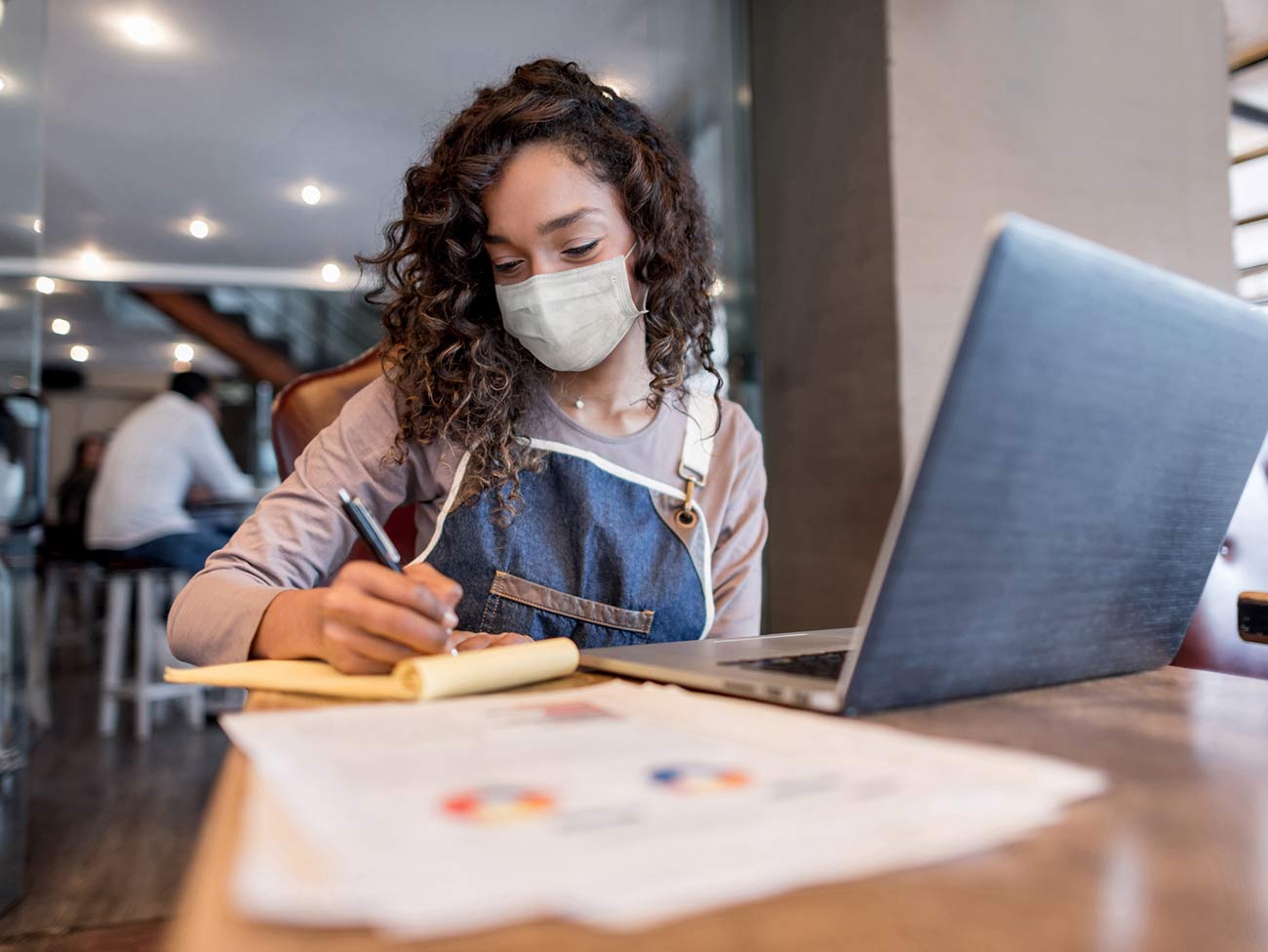
August 12, 2020
Grants support community health in midst of COVID-19
Kaiser Permanente pledges more than $28 million in grants, many to address …

July 17, 2020
Maternity care ranks among the best in the nation
Newsweek’s Best Maternity Care Hospitals 2020 report recognizes Kaiser …

July 1, 2020
A breakout moment for virtual care
Kaiser Permanente’s fully integrated telehealth capabilities place quality …

May 19, 2020
Large decrease in hospitalized heart attack patients
New Kaiser Permanente research backs anecdotal reports that people are …

May 18, 2020
Nurses step up in crises
Kaiser Permanente nurses have been saving lives on the front lines since …